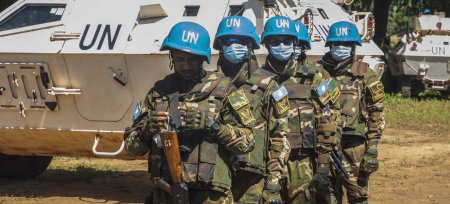
A UN report published today details the dire and worsening human rights situation over the past year in the Central African Republic (CAR), where armed groups carried out a violent bid to disrupt elections. In response, the country’s defence and security forces launched military operations to retake territory from them.
The joint report by the UN Human Rights Office and MINUSCA, the UN Mission in CAR, covers the period from July 2020 to June 2021 in the context of the presidential poll, held in December 2020, and legislative elections, which took place in December 2020, and March and May 2021*.
The Human Rights Division of MINUSCA documented 526 incidents of abuses and violations of human rights and international humanitarian law across the country during this period. These violations affected at least 1,221 victims, including 144 civilians or those hors de combat who were killed by the parties to the conflict.
Among the documented abuses and violations are extrajudicial and summary killings, torture and ill-treatment, arbitrary arrests and detentions, unnecessary and disproportionate use of force, conflict-related sexual violence and serious violations against children, including their recruitment by parties to the conflict. In addition, the report notes that attacks and threats of attacks forced thousands of civilians to flee their homes.
A coalition of armed groups, known as the CPC (Coalition des Patriotes pour le Changement), was responsible for over half of the documented incidents (54 per cent).
The CPC killed and abducted civilians, attacked UN peacekeepers, looted the premises of humanitarian organisations, threatening their staff, and burned down polling stations. In one incident on 19 March, an armed group affiliated with the CPC killed three traders in Ouaka prefecture, after tying them up and torturing them. Their bodies were subsequently found with their voting cards tied around their necks.
The Central African Armed Forces (FACA), Internal Security Forces (FSI) and other security personnel – including Russian military instructors deployed under an agreement between the Governments of CAR and the Russian Federation, and private military contractors operating in the country – were responsible for 46 per cent of the confirmed incidents.
Source: UN HRC